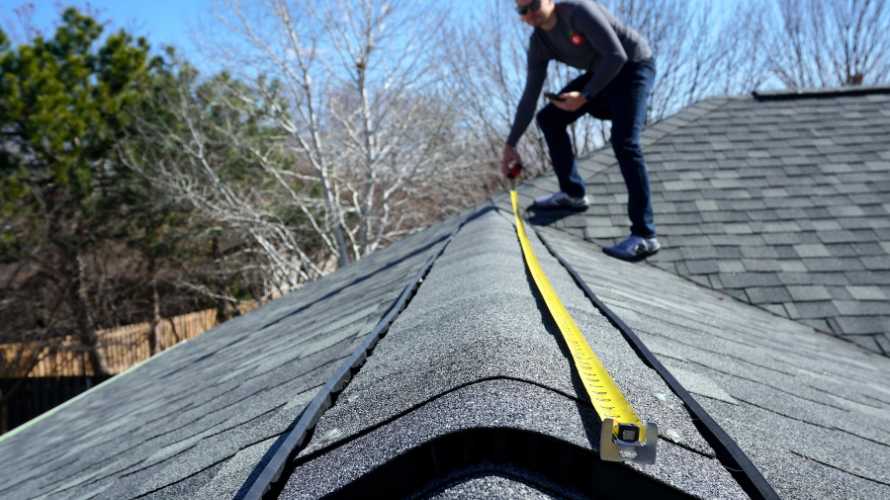Regarding home renovations, getting a new roof can be daunting. It’s not just about picking out the right shingles or tiles—there’s much more to consider. Whether you’re a first-time homeowner or a seasoned DIYer, understanding the ins and outs of roofing is essential.
This blog post will address some of the most frequently asked questions about getting a new roof. From costs to materials and everything in between, we’ll cover the essentials to ensure you’re well-prepared for this significant home improvement project.
Why Do I Need a New Roof?
Roofs are often taken for granted. Yet, they are critical in protecting your home from the elements. Over time, even the sturdiest roofs need replacement due to wear and tear. Recognizing the signs that you need a new roof can save you from extensive damage and costly repairs.
Signs such as missing or curling shingles, leaks, and visible aging indicate that a roof replacement might be necessary. Additionally, if your roof is over 20 years old, it’s time to start considering options for a new one. A proactive approach will ensure the safety and durability of your home.
Getting a new roof isn’t just about avoiding problems; it also enhances your home’s curb appeal and energy efficiency. Modern roofing materials are designed to provide better insulation, which can lead to lower heating and cooling costs.
What Are the Costs Involved?
The cost of a new roof varies widely depending on several factors. These include the size of your roof, your chosen materials, and additional features, such as skylights or improved ventilation systems. On average, homeowners in the US can expect to pay between $5,000 and $10,000 for a new roof.
While choosing the least expensive option might be tempting, remember that quality materials and skilled labor result in a longer-lasting roof. It’s an investment that pays off over time through energy savings and increased property value.
It’s wise to get multiple quotes from reputable roofing contractors. Don’t hesitate to ask for a detailed cost breakdown, and ensure all agreements are documented in writing. This transparency will help you avoid unexpected expenses.
Which Roofing Materials Should I Consider?
Choosing a suitable roofing material is crucial. It affects not only the appearance of your home but also its durability and energy efficiency. Standard options include asphalt shingles, metal roofing, wood shakes, and slate tiles.
Asphalt shingles are popular due to their affordability and ease of installation. They offer a variety of colors and styles to match your aesthetic preferences. However, while less expensive upfront, they tend to have a shorter lifespan than other materials.
Metal roofing is known for its longevity and resistance to harsh weather conditions. Though initially more costly than asphalt, metal roofs can last up to 50 years, making them a worthwhile investment. Additionally, they reflect solar heat, reducing cooling costs.
If you’re looking for a natural look, wood shakes or slate tiles could be the way to go. Wood provides a rustic charm but requires more maintenance. Conversely, slate offers unmatched durability but comes with a higher price tag and weight considerations.
How Long Does the Installation Process Take?
The duration of the roof installation process depends on various factors, including the size of your roof, the complexity of the design, and weather conditions. On average, a complete roof replacement can take anywhere from three days to two weeks.
Before the installation begins, the old roofing material needs to be removed. This process alone can take a day or two. Once the area is prepped, the installation can proceed smoothly, provided no unforeseen complications exist.
Weather plays a significant role in the timeline. Rain or strong winds can cause delays, so it’s best to schedule your roofing project during favorable weather. Communication with your contractor is critical; they can provide a more specific timeline based on your circumstances.
Should I Replace My Roof Myself?
DIY projects can be rewarding, but roofing is typically best left to professionals. The process involves risks, including working at heights and handling heavy materials. Without proper training and equipment, you might put yourself in danger or compromise the quality of the installation.
Professional roofers have the expertise and tools to ensure a safe and efficient installation. They are also familiar with local building codes and can obtain the necessary permits, reducing the risk of future problems or liabilities.
While hiring a professional might be more costly upfront, it ensures peace of mind and lasting results. If you’re determined to take a hands-on approach, consider assisting with debris removal or cleanup, which can save you money.
What Warranties Are Available?
Warranties are a vital component of any roofing project. They protect your investment by covering defects in materials and workmanship. Understanding your warranty terms can save you frustration and expense if issues arise.
Most roofing materials come with a manufacturer’s warranty, often lasting between 20 and 50 years. However, these typically cover only defects in the materials themselves. Ensuring your contractor provides a workmanship warranty covering installation errors is equally essential.
Discuss warranty options with your roofing contractor before the project begins. Ensure you receive all warranty information in writing and keep it in a safe place. This documentation will be invaluable if you need to make a claim.
How Can I Maintain My New Roof?
Regular maintenance is critical to prolonging the life of your new roof. Simple tasks like cleaning gutters, inspecting for damage, and removing debris can prevent minor issues from becoming major problems.
Schedule annual professional inspections to catch potential issues early. These inspections can identify damaged shingles, leaks, or other concerns that might not be visible from the ground. Addressing these promptly helps maintain the integrity of your roof.
Consider preventative measures such as trimming overhanging branches or installing gutter guards. These efforts reduce the risk of damage from falling debris or water buildup, allowing your new roof to maintain its protective function for years.
How Do I Choose the Right Contractor?
Selecting a reliable roofing contractor is crucial for a successful installation. Start by asking for recommendations from friends, family, or neighbors who have had positive experiences. Online reviews and ratings can also provide insight into a contractor’s reputation.
Once you’ve narrowed your options, request detailed quotes from each contractor. Compare these based on cost, materials used, and estimated timelines. Don’t hesitate to ask questions about their experience and previous projects similar to yours.
Verify that your chosen contractor is licensed and insured. This protects you from liability in case of accidents during the project. A good contractor should also offer a warranty on materials and workmanship, giving you added peace of mind.
What Impact Will a New Roof Have on My Home Value?
A new roof can significantly enhance your home’s value and curb appeal. Potential buyers often prioritize homes with recent roof replacements, knowing they won’t face this expense immediately. According to experts, a new roof can yield a return on investment of up to 70%.
Beyond aesthetics, new roofing materials often offer energy-efficient benefits. Improved insulation and solar reflectance can lower energy bills, making your home more attractive to environmentally conscious buyers.
If you plan to sell your home shortly, consider the added value of a new roof. Highlight this feature in your listing to attract buyers who appreciate the reduced maintenance costs and enhanced security it provides.
Are There Environmental Considerations?
Eco-friendly roofing options are gaining popularity as sustainability becomes a priority for many homeowners. Materials such as metal or recycled shingles are durable and reduce landfill waste. Additionally, they often have reflective properties that contribute to energy efficiency.
If minimizing your carbon footprint is important to you, explore green roofing solutions like living roofs or solar shingles. These options provide environmental benefits while offering unique aesthetic appeal.
Discuss eco-friendly options with your roofing contractor. They can recommend materials and designs that align with your sustainability goals and your budget, ensuring you make a choice that benefits your home and the planet.
What Are the Common Misconceptions?
Several myths surround the topic of roofing, leading to confusion. A common misconception is that a new roof can be installed over an old one. While this is possible in some cases, it’s generally not recommended due to the risk of underlying damage and added weight.
Another myth suggests that all roofing materials are the same. In reality, various options offer substantial differences in durability, cost, and energy efficiency. Researching materials thoroughly helps make an informed decision.
Some homeowners believe that all roofing contractors provide the same level of service. This is far from the truth. Researching and selecting a reputable contractor ensures a quality installation and reduces the likelihood of future issues.
Conclusion
Investing in a new roof is a significant step in maintaining and enhancing your home. By understanding the process, costs, and materials, you can make informed decisions protecting your investment. Whether you’re motivated by aesthetics, energy efficiency, or peace of mind, a new roof offers numerous benefits.
If you’re ready to take the next step, contact a professional roofing contractor to discuss your options. They can guide you through the process and help you choose the best solution for your home. Remember, a well-maintained roof is a testament to your home’s strength and resilience.
You may also like to take a look at some of these great resources:- How To Know When It’s Time For A New Roof
- What Is Metal Roofing, And What Are Its Benefits?
- What Are The Benefits Of Choosing James Hardie Siding?
- What Are The Benefits Of Having New Siding Installed On Your Home?
- Should You Insulate Your Attic Yourself Or Hire A Professional?
- How to Hire a Roofing Contractor: the Ultimate Checklist
- How to Avoid Being Scammed by a Roofing Contractor




